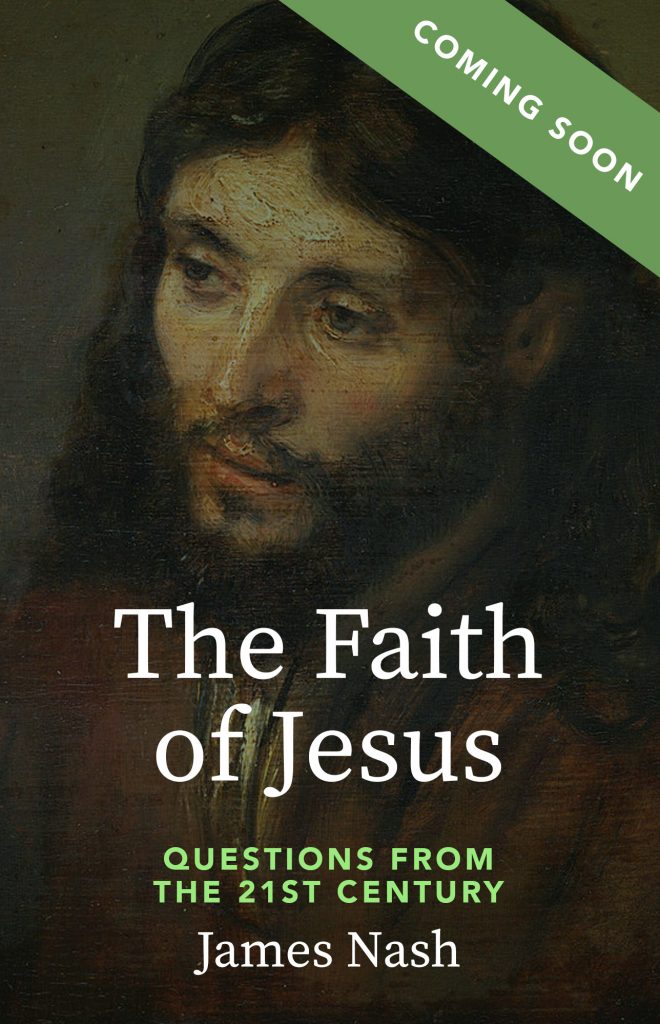26th Sunday Ordinary Time
Amos 6: 1a, 4-7
I Timothy 6:011-16
Luke 16:19-31

This famous story of Lazarus and the rich man is found only in Luke, who, like Jesus, cared a lot about the poor and the dangers of wealth. It seems to illustrate the warning from last week that you cannot serve God and mammon—you have to choose. Still, I hope to explain this parable is more mysterious and ambiguous than you might think.
Although much of the story takes place after the two main characters die, its primary focus is how we should live in the here and now. Before looking at this question, however, let’s pay attention to the story’s vision of life after death. Precisely because the story’s depiction of Hades is not its main point but is more or less taken for granted, we can learn something about how people envisioned life after death in Jesus’ time.
What jumps out at me is that when they die Lazarus and the rich man both end up in the same place! Most people assume the rich man is in hell while Lazarus is in heaven. After all, the rich man says he is “in anguish in this flame,” whereas Lazarus is being comforted. But then how could they communicate? Abraham, Lazarus and the rich man are all in Hades, and although separated by a “great chasm,” they are close enough to see one another and to have a conversation.
It is striking that they are all in the same place even though the story contrasts the miserable life Lazarus had to endure with the self-indulgent indifference of the rich man, commonly called “Dives,” which means “rich man” in Latin. “Hades,” is a Greek word that does not mean hell. Unlike hell, Hades is not reserved for the punishment of evil-doers, but at a time when belief in resurrection was not common, Hades was seen as the place where all departed souls are, including the father of faith, Abraham.
What is Hades?
What do we know about the meaning of the Greek word háͅthēͅ, or Hades? Luke uses this word in Acts 2:31 when Peter is speaking to all the people in Jerusalem on Pentecost. He tells them that King David “foresaw and spoke of the resurrection of the Christ, that he was not abandoned to Hades, nor did his flesh see corruption.” Now there is no question of Christ ever being condemned to a hell of eternal punishment. This verse confirms Hades is simply the name given to the place where all the departed souls go after death. This is why Luke has to point out in verse twenty-three that Dives “was in torment.” Abraham and Lazarus, also in Hades, were not in torment.
Still, Dives sees Lazarus “far off.” Where was Lazarus then? Many translations place him in “the bosom of Abraham.” David Bentley Hart translates it as “the Vale of Abraham,” and I think this is better than “the bosom of Abraham.” The Greek word kolpos can mean many things, not only “bosom,” but also “womb” “hidden places” or “valley.” One good reason to translate it as “valley,” is that we are told a “great chasm” separates Dives from the place where Abraham and Lazarus are. As David Bentley Hart points out, it makes perfect sense that the place of peace set apart for the righteous in the realm of the dead would be called the Vale of Abraham. If we understand Lazarus to be in the Vale of Abraham, it helps us envision Hades as a large place, with various features, and this is doubtless closer to the way Jesus’ audience would have imagined it.
This vision of the afterlife precedes God’s final judgment and includes everyone who is dead, sinners and saints. The righteous are comforted while the unrighteous suffer. The story tells us nothing about how long anyone will stay in Hades, but clearly the picture it gives us is before resurrection. If you believe Dives will remain in torment forever, you are reading that into this story.
Is Luke’s Jesus endorsing this view of what happens to us after death? I do not see how we can know the answer to this question. However, the very fact that this depiction of the after-life is not the main point of the story suggests that it is not controversial and would have been commonly accepted by Jesus’ audience.
But then what is the main point of the story?
I believe the key to this story is the punch line when in the final verse Father Abraham tells Dives, “If they do not hear Moses and the prophets, neither will they be convinced if some one should rise from the dead.” The first reading from Amos tells us what Abraham means by “hearing the prophets.” When Amos calls for woe on those who “eat lambs from the flock” but “are not grieved over the ruin of Joseph,” it seems to fit the depiction we have of Dives, who “feasted sumptuously every day,” and paid no attention to the poor man full of sores who lay at his door. Even the dogs seemed to show more humanity than Dives, as they at least licked Lazarus’s sores.
The punch line tells us that one point of this story is that Jesus’ message to the rich is the same as the prophets.
Another point of the story is the fate of Dives. Why is he in torment? The story offers us two possible interpretations.
If we read the story literally, we may understand it to mean that rich people who live well in this life will automatically be tormented after death. The closest we come to an explanation for Dives’ torment is when Abraham tells him in verse 25, “Son, remember that in you in your lifetime received your good things, and Lazarus in like manner evil things; but now he is comforted here and you are in anguish.” But this could be merely a matter of fact statement of the situation, rather than an affirmation of cause and effect.
There is some other scriptural support for supposing rich people may be punished in the next life. “Woe to you that are rich, for you have received your consolation. Woe to you that are full now, for you shall hunger,” Jesus tells us at Luke 6:24-25. More famous is Jesus’ saying that it is easier for a camel to pass through the eye of a needle than for a rich man to enter the kingdom of God (Mark 10:25-27).
Still, I bet most people interpret the story differently. Whether you are a Christian or not, you have probably internalized Jesus’ command to be compassionate to those you meet who are suffering and therefore you will read the story moralistically. A moral interpretation is that the rich man is in torment because he showed no pity for Lazarus, who lay on his very doorstep. Dives is the opposite of the Good Samaritan, who was moved by compassion to relieve the suffering of a stranger whose path he crossed.
Sometimes what is most important is what is not said. It may be that the story never tells us Dives is in torment because of his blindness to Lazarus’ suffering because this would have been so obvious as to go without saying to anyone familiar with Scripture.
Another reason to favor a moral interpretation is Dives’ request that Abraham send Lazarus to warn Dives’ five brothers so they can avoid the torment he is suffering. Abraham’s response implies that if the brothers heed the warnings of the prophets, they will be spared torment.
A friend of mine pointed out that Martin Luther King believed this story had nothing to do with punishing you for being rich because Abraham was not punished yet he was himself a wealthy man.
Logically, it might seem only of these interpretations can be true. But perhaps each has a spiritual value, depending on where you are in your walk with God. In any case, I do not think Luke’s Jesus is telling us this story to give us precise information about what happens to rich people after they die. The story is warning us to pay attention now, in this life, to what Jesus and the prophets have to say about wealth and the poor. If you have money, use it to help the poor.
The story’s punch line carries a second point, an odd one at that. It seems to suggest Jesus’ resurrection has no impact on whether people will accept this message. Abraham says in verse 31 that if people do not hear Moses and the prophets they will not be convinced if some one should rise from the dead. Wow! Maybe that raises another question: why did Jesus rise from the dead then?
Do you agree that Jesus’ resurrection has not led people to be more compassionate toward the poor? This is a challenge to all Christians. You can start to answer the question by beginning with yourself. Does Jesus’ death and resurrection change the way you treat people? If so, how? And why?



